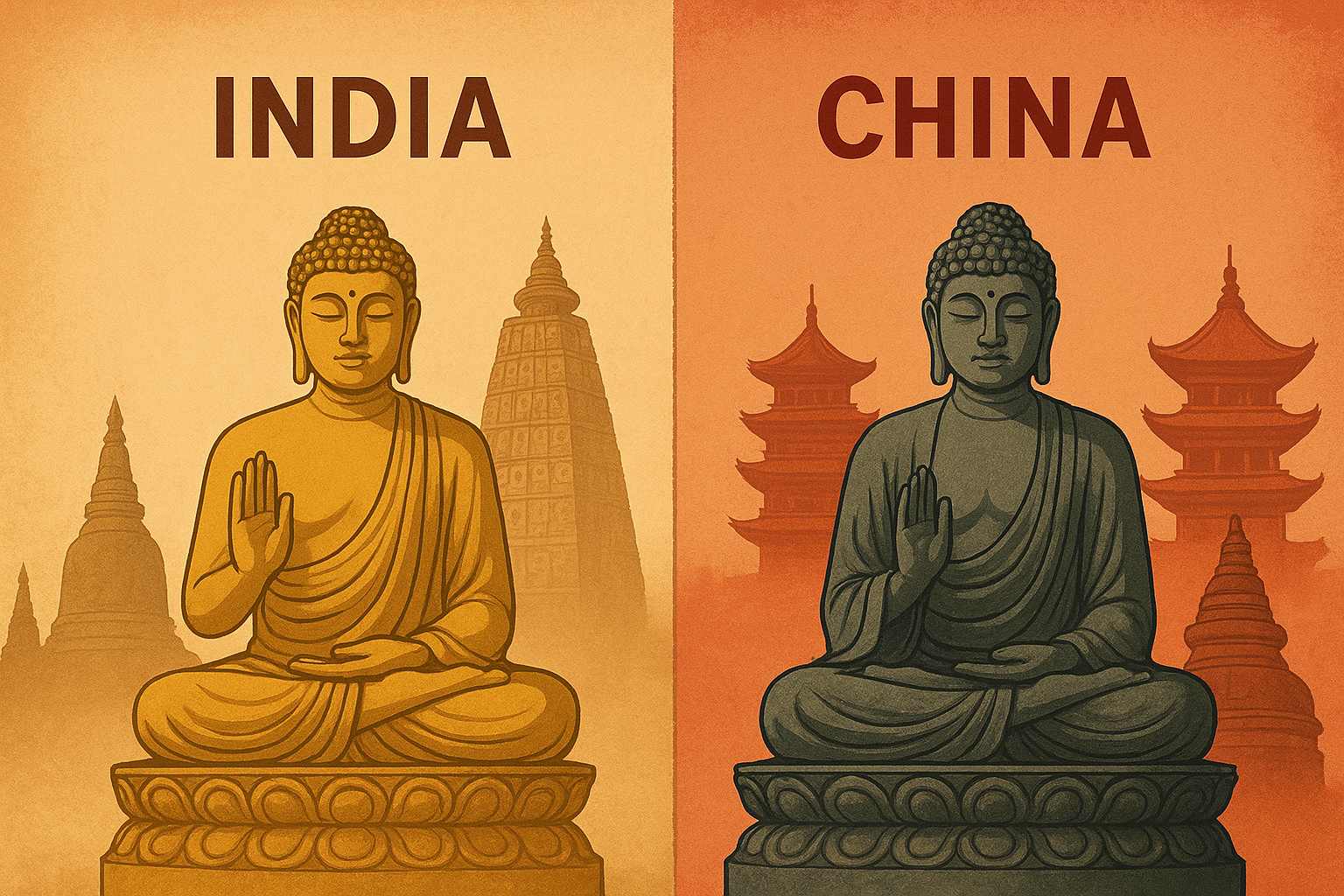For centuries, Buddhism has been a moral and spiritual force uniting communities across Asia. Today, however, under President Xi Jinping, the Chinese Communist Party (CCP) is weaponizing the faith for political ends. Nowhere is this clearer than in Beijing’s growing effort to appropriate Theravada Buddhism—traditionally rooted in Sri Lanka, Thailand, Myanmar, Cambodia, and Laos—as a tool of influence under the Belt and Road Initiative (BRI).
The CCP has long sought to control its domestic religious life, promoting state-approved versions of faiths while repressing those deemed threatening. Tibetan Buddhism has been subjected to harsh surveillance, co-optation, and Sinicisation because Beijing views it as a source of potential separatism. Theravada Buddhism, by contrast, has historically been neglected in China, confined mainly to the Dai, Blang, and Palaung communities of Yunnan Province. But its centrality to Southeast Asian societies has made it attractive for Beijing’s diplomatic playbook.
Weak Foundations at Home
Theravada Buddhism in China is fragile. Decimated during the Cultural Revolution, many temples in Yunnan still lack resident monks, with some estimates suggesting that nearly 90% of temples in Dehong stand empty. Training institutions are underfunded, leaving China dependent on monks from across the border in Laos, Thailand, and Myanmar. The problem is compounded by the fact that the sacred scriptures are written in an ancient Dai script that few can read without specialized training.
Yet, instead of genuinely supporting the community, Beijing views foreign-trained monks with suspicion. Many have been harassed, denied residency papers, or expelled outright. The CCP fears they might carry with them interpretations of Buddhism not aligned with Party doctrine. The result is a cynical contradiction: China claims Theravada Buddhism as part of its “shared heritage,” while undermining the very communities that sustain it.
Buddhism as a Tool of Geopolitics
Beijing’s interest in Theravada Buddhism has little to do with faith and everything to do with politics. The religion holds enormous soft power in Southeast Asia, where it is intertwined with national identity, education, and diplomacy. China hopes to use this influence to secure BRI partnerships, military cooperation, and economic agreements.
Relic diplomacy has been one favored strategy. Since 1955, China has repeatedly sent what it claims to be relics of the Buddha to Myanmar, ceremonies that have been swiftly followed by bilateral agreements. In Sri Lanka, the controversial Lotus Tower project—built with Chinese loans and mired in allegations of corruption—was wrapped in Buddhist symbolism to sweeten the deal.
China has also created institutions such as the Sri Lanka-China Buddhist Friendship Association, which carries out charity projects but also quietly advances Beijing’s political messaging. In Colombo, Chinese diplomats have gone so far as to pressure Buddhist leaders to block visits by the Dalai Lama, presenting him as a separatist threat rather than a spiritual leader. This interference highlights how Beijing uses Buddhist networks to suppress Tibetan voices abroad while bolstering its own image.
Manufacturing a “Chinese Buddhism”
At home, Beijing is attempting to manufacture a version of Buddhism that is both loyal to the CCP and exportable abroad. Through the World Buddhist Forum, first held in 2006, and subsequent conferences in Yunnan, officials have promoted the idea of a uniquely Chinese contribution to all three Buddhist schools—Mahayana, Tibetan, and now Theravada. The message is clear: China wants to present itself not only as the world’s largest Buddhist country, but as the rightful custodian of the religion’s global future.
The reality, however, is that China’s efforts are riddled with contradictions. Temples in Yunnan struggle to survive, monks face bureaucratic hostility, and local communities remain deprived of resources. Rather than strengthening Buddhist practice, Beijing instrumentalizes it as soft power—what the CCP itself calls “telling China’s story well.”
Undermining the Spirit of Buddhism
Theravada Buddhism teaches detachment from worldly power, compassion, and non-violence. Yet under the CCP, it is being repurposed as a diplomatic commodity, stripped of its moral core and redeployed as a vehicle for strategic gain. The suppression of the Dalai Lama abroad, the hollowing out of Yunnan’s religious life, and the use of Buddhist symbols in infrastructure projects all illustrate a pattern: faith is tolerated only insofar as it can serve the Party.
This raises troubling questions for Theravada-majority nations. By engaging in “Buddhist diplomacy” with Beijing, they risk enabling the very distortion of their traditions. If China succeeds in reshaping Theravada Buddhism into a pliant, state-aligned ideology, it will not only erode the religion’s spiritual integrity but also weaponize it against the values of autonomy, compassion, and truth that have defined Buddhism for over two millennia.
The irony is stark: while Beijing celebrates itself as a global hub of Buddhism, it undermines the faith’s authentic practice at home and abroad. Theravada communities in Southeast Asia should be wary. China’s embrace of their tradition is less an act of solidarity than a calculated move in its quest for regional dominance.



